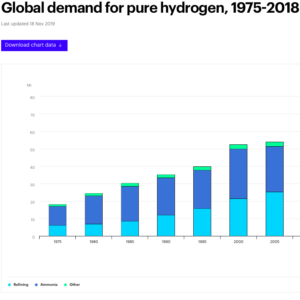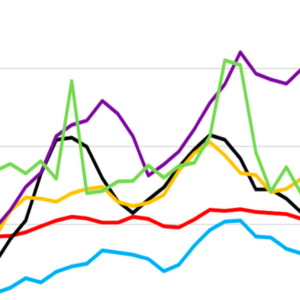Content by Author
Ammonia energy is now a talking point for CEOs
Chief executives of major corporations are now talking about ammonia energy. This represents another crucial step up the learning curve for clean industry: knowledge about ammonia's potential has successfully spread from the R&D department to the executive suite. This is the difference between development and deployment. The fertilizer industry saw this in 2018, when the CEOs of first movers like Yara and OCP announced green ammonia pilot plants. These latest announcements come, however, from the shipping and power sectors — far bigger industries, with no existing ammonia business — and they focus on the use of green ammonia: for fuel and for profit.
Updating the literature: Ammonia consumes 43% of global hydrogen
For years, many people — myself included — have been saying that ammonia consumes 55% of the hydrogen produced around the world. Although there are many authoritative sources for this figure, I knew that it was likely out of date. Until now, I had overlooked the International Energy Agency (IEA) 2019 report, The Future of Hydrogen, which provides up-to-date (and publicly downloadable) data for global hydrogen demand since 1975. According to the IEA, ammonia represented almost 43% of global hydrogen demand in 2018; refining represented almost 52%, and "other" demands accounted for 6%.
The cost of hydrogen: Platts launches Hydrogen Price Assessment
What does hydrogen really cost? Apparently, there's now a good answer to this question. $0.7955 per kg. This is according to the new daily hydrogen price assessment launched yesterday by Platts. Price assessments like this are invaluable for thriving markets, supporting transparency and developing into the benchmarks and indexes that underpin investments, trade, and regulations. This is a welcome innovation from the universe of financial product development. It will be interesting to see how Platts's hydrogen prices evolve, in terms of the cost structure of hydrogen production, of course, but also from the perspective of ammonia energy. If the purpose is to support commodity trading, these price assessments must eventually expand to include hydrogen carriers — molecules, like ammonia, that can be stored and transported more economically than hydrogen itself — in other words, commoditized hydrogen.







